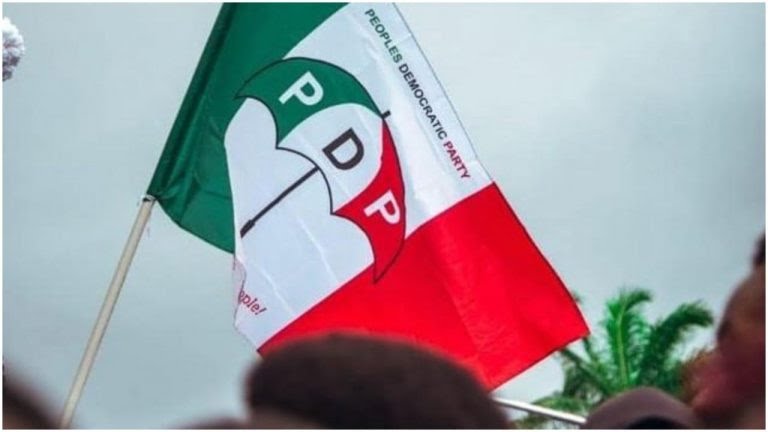Paragraph 1: The Southwest PDP’s Declaration of Intent
The political landscape in Nigeria is bracing for a significant showdown in the 2027 general elections, as the Southwest chapter of the Peoples Democratic Party (PDP) has boldly declared its intention to unseat President Bola Ahmed Tinubu. This declaration, emanating from the Gbenga Hashim Solidarity Movement, a group within the PDP, signals a determined effort to challenge the ruling All Progressives Congress (APC) and reshape the nation’s political trajectory. The movement’s Southwest coordinator, Abass Olaniyi, articulated this ambition, emphasizing the PDP’s commitment to rescuing Nigeria from the perceived grip of vested interests. This sets the stage for a potentially intense political battle in the coming years, with the Southwest PDP positioning itself at the forefront of the opposition’s efforts.
Paragraph 2: The PDP’s Strategy for 2027
The Southwest PDP’s strategy for achieving its ambitious goal revolves around several key elements. The party aims to present itself as a credible, united, and principled alternative to the APC. This involves emphasizing integrity and ideological clarity, qualities they believe are lacking in the current administration. They intend to mobilize support across the Southwest region and beyond, building a formidable force capable of challenging Tinubu’s incumbency. This strategy hinges on the belief that Nigerians are yearning for a change, seeking a political force that embodies honesty and ethical governance. The PDP seeks to capitalize on this sentiment, portraying itself as the embodiment of these desired qualities.
Paragraph 3: The PDP’s Critique of the APC
The PDP’s offensive against the APC is rooted in the allegation that the ruling party serves the interests of a select few, rather than the broader Nigerian populace. This critique seeks to paint the APC as an elite-driven political entity disconnected from the needs and aspirations of ordinary citizens. The PDP further contends that the APC lacks the integrity and principled leadership necessary to effectively govern the nation. By highlighting these perceived shortcomings, the PDP aims to position itself as a more virtuous and responsive alternative. This strategy of contrasting their purported values with the perceived flaws of the incumbent party is a classic political tactic aimed at swaying public opinion.
Paragraph 4: Internal Challenges and Rebuilding the PDP
The PDP acknowledges the existence of internal challenges and the need for a revitalization of the party’s core principles. They condemn attempts by certain individuals to exploit these internal divisions for personal gain, emphasizing the importance of unity and ideological clarity. This recognition of internal issues suggests a degree of self-awareness within the party and a commitment to addressing these challenges. The call for a return to founding principles signals an attempt to reaffirm the party’s identity and values, presenting a renewed image to the electorate. This internal rebuilding process is crucial for their credibility as they prepare for the 2027 elections.
Paragraph 5: The Gbenga Hashim Solidarity Movement’s Role
The Gbenga Hashim Solidarity Movement is playing a pivotal role in the PDP’s mobilization efforts. This group is actively working to build support for the party across the Southwest and beyond. They are championing the need for leaders with integrity and a clear ideological vision, emphasizing the importance of these qualities in the upcoming electoral battle. The movement’s activities highlight the importance of grassroots mobilization and the role of dedicated groups within political parties in driving momentum and shaping the political narrative. Their focus on integrity and principle seeks to resonate with voters who are disillusioned with the perceived ethical shortcomings of the current political landscape.
Paragraph 6: The Path to 2027
The road to the 2027 elections is expected to be a challenging and complex one for the PDP. They face the formidable task of unseating an incumbent president and overcoming the APC’s established political machinery. The PDP’s success hinges on their ability to effectively implement their strategy, unite behind their chosen candidate, and convince the Nigerian electorate that they represent a viable and preferable alternative. The coming years will witness a period of intense political maneuvering, campaigning, and debate as the various political forces jostle for position. The Southwest PDP’s declaration of intent marks the beginning of this crucial political contest, setting the stage for a potentially transformative period in Nigerian politics.














